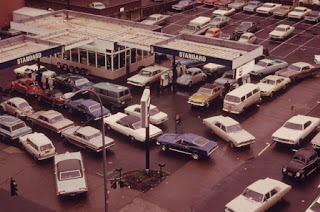Unless you've been living under a rock, you've heard about the emissions fraud perpetrated by Volkswagen, which installed software that enabled some VW models to behave like saints during the EPA emissions tests, while allowing devilish behaviour out on the road while you are at the wheel going about your daily business.
During the tests, the NOx emissions come in under the legal limit, while in real-life conditions it can be 10 to 40 times larger than that legal limit. NOx is a gas that contributes to small-particle pollution (better known as smog) that's bad for lung health.
Why did Volkswagen do this?
Why, to save money, why else?
This is not cool. I bought my diesel Golf because it offered decently high mpg without the environmental and maintenance problems of the battery in a hybrid, and without the range issues of most affordable EVs. I did know about the particulate emissions but made a conscious decision that the low carbon emissions was worth the added pollution, especially since I live in a small town where the dust from unpaved roads make a larger contribution to the particulate levels in the air.
But I didn't buy it so that I can spray egregious NOx emissions.




